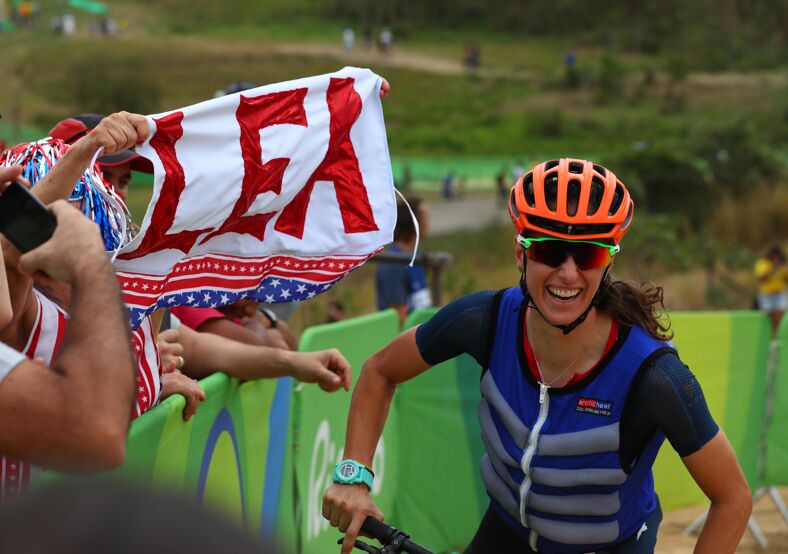As anyone who’s watched even five minutes of Olympics TV coverage knows, human interest stories are a major part of every Summer and Winter Games. And one of the most fascinating sagas of the Tokyo Olympics was going to be the continued rise of LGBTQ visibility among its out athletes.
While this particular story is on pause until 2021 — like everything else — the forward momentum of LGBTQ visibility is undeniable and unstoppable. As US cross country cyclist Lea Davison explained to USA Today, it’s been the result of a decades-long process of acceptance.
Because cross country cycling is not as prominent an Olympic event as basketball or track and field, a large part of funding for the sport comes from sponsorships. Davison, who identifies as gay, asserted that the climate around those sponsorships for LGBTQ athletes has changed drastically for the better over the past few years.
Specifically, Davison cited the 2016 Rio Olympics as a watershed moment for visibility and credited LGBTQ stars Megan Rapinoe, Gus Kenworthy, and Adam Rippon for improving the prospects for athletes like herself:
“There’s been an amazing shift in the last couple of years. Because of the trailblazers like Megan, Gus, and Adam, it’s really been flipped on its head. And thank goodness for a more inclusive world. Before, it used to be, ‘If the companies know I’m gay, I’ll lose these sponsors.’ Now the fact that I’m gay is a bonus.”

Such testimony makes it clear that the change for LGBTQ athletes has been seismic compared to the days when athletes like Greg Louganis and Brian Boitano waited to come out until several years after they were done competing.
In fact, USA Today’s Scott Gleeson quoted Louganis remembering that in his era, “there were moral clauses where a part of your personal life could be used as a reason to cut sponsorship.”
Contrast that with Davison’s experience upon marrying her wife Frazier Blair in 2018. While she had not been public about her personal life to that point, as her wedding date approached, Davison began receiving support from her sponsors in the form of customized couple’s matching white cycling jerseys from Louis Garneau Sports and social media support from Clif Bar & Company.
Davidson marked that support as an important step in her own personal visibility. In 20 years, it was the first time a sponsor had celebrated her being gay:
“Some of these actions help me realize I can be more vocal about my sexuality and I feel empowered to show it. I can show the youth to be an example of a gay Olympian who can still have sponsorship. That’s a really important message to send to the next generation.”
After finishing 11th in the 2012 Olympic Games and seventh in 2016, Davison was driven by her desire to land on the medal podium in Tokyo. Even though that quest has been delayed, the story of her acceptance for living her truth is a victory that she’s already won this year.
And anyone who can win a significant victory in 2020 is miles ahead of the game.







































